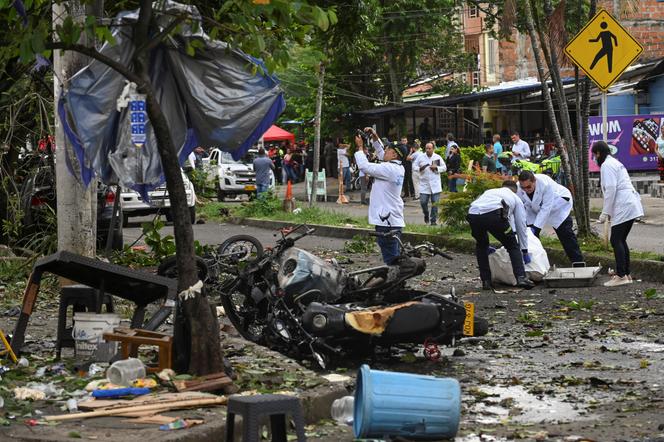


Dawn broke with explosions in southwestern Colombia. In Cali, the country's third-largest city, three devices detonated in rapid succession, killing two people. Car and motorcycle bombs, grenade attacks and gunfire continued for several hours on Wednesday, June 11. In total, authorities recorded 24 attacks in the departments of Cauca and Valle del Cauca. Six other people, including two police officers, were killed, and 28 were injured, according to a provisional report by the national police. The city's secretary of health, Maria Cristina Lesmes, cited 74 injured and issued an appeal for blood donations.
The question remained whether this wave of violence was linked to the attack that targeted right-wing senator Miguel Uribe on Saturday in Bogotá. Shot in the head, Uribe, who is considering a run in the 2026 presidential election, remained in "stable but critical condition," according to his doctors. The teenager accused of the shooting was arrested at the scene and formally charged with homicide on Tuesday.
No armed group claimed responsibility for the wave of attacks that shook the departments of Cauca and Valle del Cauca, but authorities suspect that Estado Mayor Central (EMC), a "dissident" armed group that claims lineage from the former Fuerzas Armadas Revolucionarias de Colombia (FARC, Revolutionary Armed Forces of Colombia) guerrilla − demobilized nearly a decade ago − was behind the violence.
You have 71.63% of this article left to read. The rest is for subscribers only.
